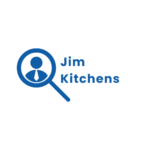Navigating the maze of career advancement can feel like trying to find a needle in a haystack—blindfolded. A solid career development plan is the trusty flashlight that illuminates the path ahead. With a well-crafted plan, individuals can transform their aspirations into achievable goals, all while dodging the pitfalls of aimless wandering.
Career Development Plan Example
Career development plans clearly outline professional goals and the strategies needed to achieve them. These plans guide individuals through the complexities of career growth.What Is a Career Development Plan?
A career development plan is a strategic framework that helps professionals assess their current skills and identify future aspirations. Such a plan typically includes specific objectives, timelines, and actionable steps. Individuals use these plans to track progress and make adjustments as needed. Customizing a career development plan can address unique aspirations and workplace dynamics.Importance of Career Development Plans
Career development plans enhance clarity in personal and professional goals. Individuals benefit from measuring progress and identifying skill gaps, fostering targeted learning opportunities. Such plans promote proactive career management. Employees with well-defined career paths are more engaged and motivated. Employers also gain advantages through increased retention and higher performance rates. Clear development plans align organizational objectives with individual aspirations, creating a cohesive and productive work environment.Key Components of a Career Development Plan

Setting Career Goals
Specific career goals form the foundation of a development plan. Defining short-term and long-term objectives allows individuals to maintain focus. Short-term goals might include gaining a specific certification or completing a project. Long-term goals could include advancing to a leadership position or transitioning into a new field. Clarity in goals enables measurable progress and motivates individuals to stay engaged.Identifying Skills and Competencies
Understanding relevant skills and competencies is crucial for any career development plan. Assessing present skills helps individuals recognize areas for improvement. They might conduct self-assessments or seek feedback from peers and supervisors to identify strengths and weaknesses. Individuals can focus on enhancing technical skills or developing soft skills such as communication and leadership. Identifying these competencies aids in aligning training and learning opportunities with career aspirations.Creating an Action Plan
An actionable plan outlines the steps needed to achieve career goals. Individuals should list specific actions, including training programs or networking events, associated with each goal. Timelines for each step provide a clear roadmap, making it easier to track progress. Regularly reviewing and updating the action plan ensures it reflects changing circumstances and evolving career goals. This dynamic approach promotes continual growth and adaptation in a competitive job market.Career Development Plan Example
A career development plan effectively outlines the steps needed for professional growth. It serves as a roadmap for navigating career advancements.Step-by-Step Breakdown
-
- Set Specific Career Goals: Define both short-term and long-term objectives to ensure clarity and focus.
-
- Identify Skills and Competencies: Assess existing skills and determine what needs improvement.
-
- Create an Actionable Plan: Develop a roadmap that details necessary steps, assigns timelines, and includes milestones.
-
- Regularly Review Progress: Schedule reviews to evaluate achievements and make adjustments as needed.
-
- Seek Feedback: Consult mentors or supervisors to gain insights and guidance on career development.

